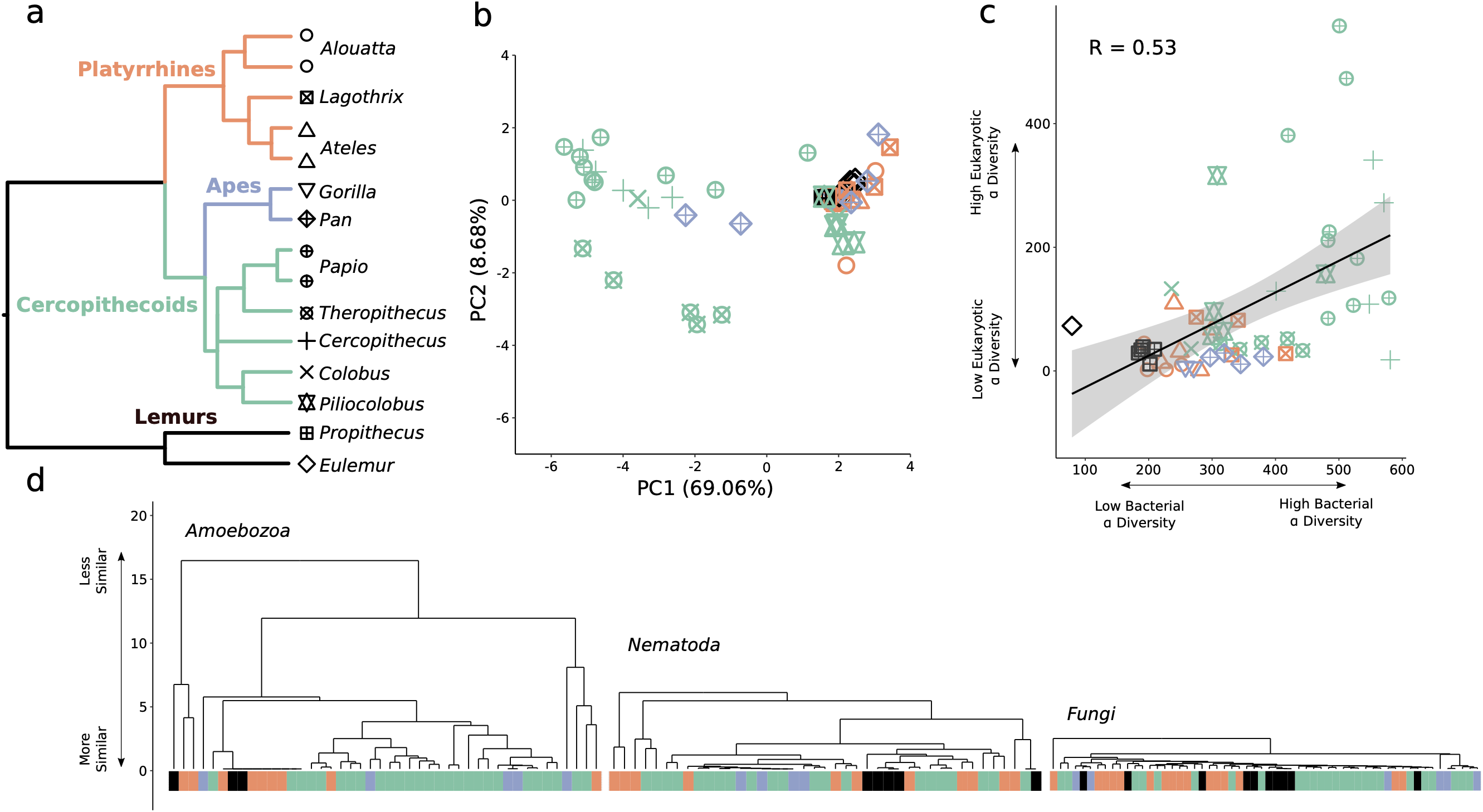Microbial eukaryotes in the primate gut

Background
The mammalian gut microbiome is home to a variety of microorganisms from all kingdoms of life (and viruses too!). The assembly, structure, and stability of these microbial communities is shaped by host gut physiology, diet, phylogeny, host age, geography, and social behaviors. Our current understanding of gut microbial communities is shaped by a disproportionate focus on the role of bacteria but micro- and macroeukaryotes also shape the community through predation, resource competition, and interaction with the host immune system. I’m interested in how these ecosystems evolved in humans and our closest non-human primate relatives.
Relevant publications
- The eukaryome of African children is influenced by geographic location, gut biogeography, and nutritional status. 2023. Vonaesch P, Billy V, Mann AE, Morien E, Habib A, Collard JM, Dédé M, Kapel N, Sansonetti PJ, Parfrey LW, the Afribiota Investigators. microLife
- Biodiversity of protists and nematodes in the wild nonhuman primate gut. 2019. Mann AE, Mazel F, Lemay MA, Morien E, Billy V, Kowalewski M, Di Fiore A, Link A, Goldberg TL, Tecot S, Baden AL, Gomez A, Sauther ML, Cuozzo FP, Rice GAO, Dominy NJ, Stumpf R, Lewis RJ, Swedell L, Amato K, Wegener Parfrey L. The ISME Journal 14: 609-622
Code
Other Media
Posters
- Allison E. Mann & Cecil M. Lewis Jr. (2018) Microeukaryotic and dietary survey of the human gut by internal transcribed spacer metabarcoding. Microbiome Research Network Symposium, Vancouver, BC, Canada [PDF]
Presentations
- (2019) Impact of host phylogeny, local ecology, diet, and behavior on the diversity of gut-associated eukaryotes in the wild non-human primate gut. Texas Association of Biological Anthropologists Annual Meeting, Baylor University
- (2018) Phylogenetic patterning of eukaryotes in the primate gut. Postdoctoral Research Association Research Day, University of British Columna (3rd Place Winner)